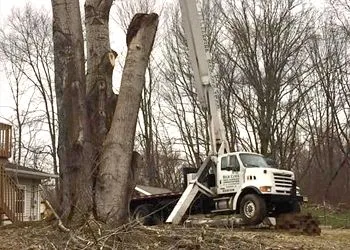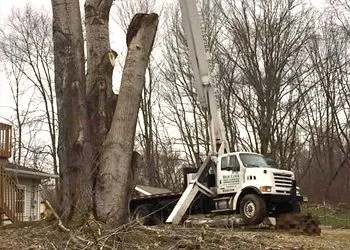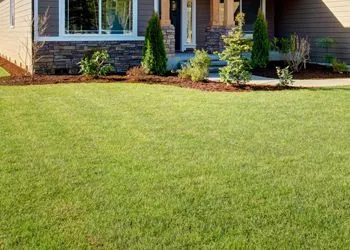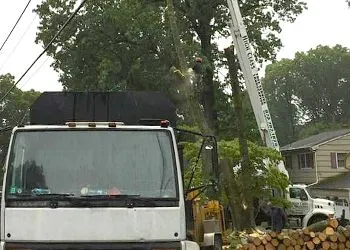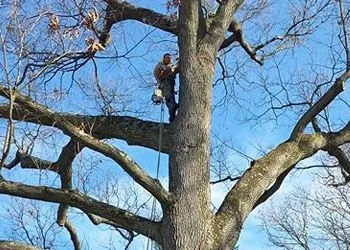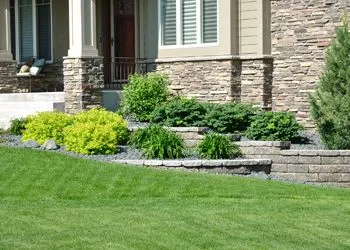High Class Tree Service Blog
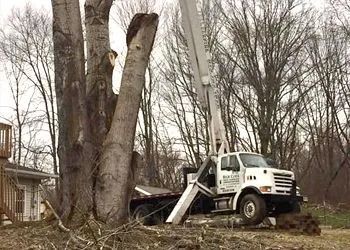
If you're managing a commercial property, tree removal might be something that sneaks up on you. One day, everything looks fine; the next, a storm rolls through or a tree starts leaning a little too close to the building. Whether it's for safety, appearance, or clearing space for new development, knowing your options for tree removal is a smart move. When you need commercial tree removal in Succasunna, NJ, or the surrounding areas, contact High Class Tree Service Standard Tree Removal This is the most common method, typically used when a tree is dead, dying, or in the way. Arborists cut down the tree safely, piece by piece if necessary, especially in tight commercial spaces. The trunk and limbs are then hauled away or ground up. It's a clean, efficient way to get problem trees off your property. Emergency Tree Removal In the aftermath of storms or high winds, trees can fall or become dangerously unstable. Emergency tree removal services are available 24/7 to deal with immediate threats. These pros are trained to handle hazardous conditions, often working around damaged buildings, power lines, or roadways. Stump Grinding and Root Removal After a tree is removed, you're left with a stump that can be unsightly or pose a tripping hazard. Stump grinding is a quick and effective way to eliminate the remaining base. For commercial landscaping or repaving plans, removing major root systems may also be necessary to prevent future issues. Tree Removal with Crane Assistance For large or hard-to-reach trees, especially near buildings or power lines, crane-assisted removal provides a safer and more controlled approach. It’s often used on commercial sites where space is tight and safety is a priority. Commercial Tree Removal in Succasunna, NJ From one local business to another, thank you for considering High Class Tree Service for your property care needs. Our team is proud to offer commercial tree removal to help area companies enhance curb appeal, ensure safety, and comply with local regulations. Our experienced arborists are equipped to handle trees of all sizes and complexities, providing efficient and professional removal services with minimal disruption to your operations. With flexible scheduling, we can perform our services at a time that will have a minimal impact on your operations. Call us at 973-437-5510 to learn more.
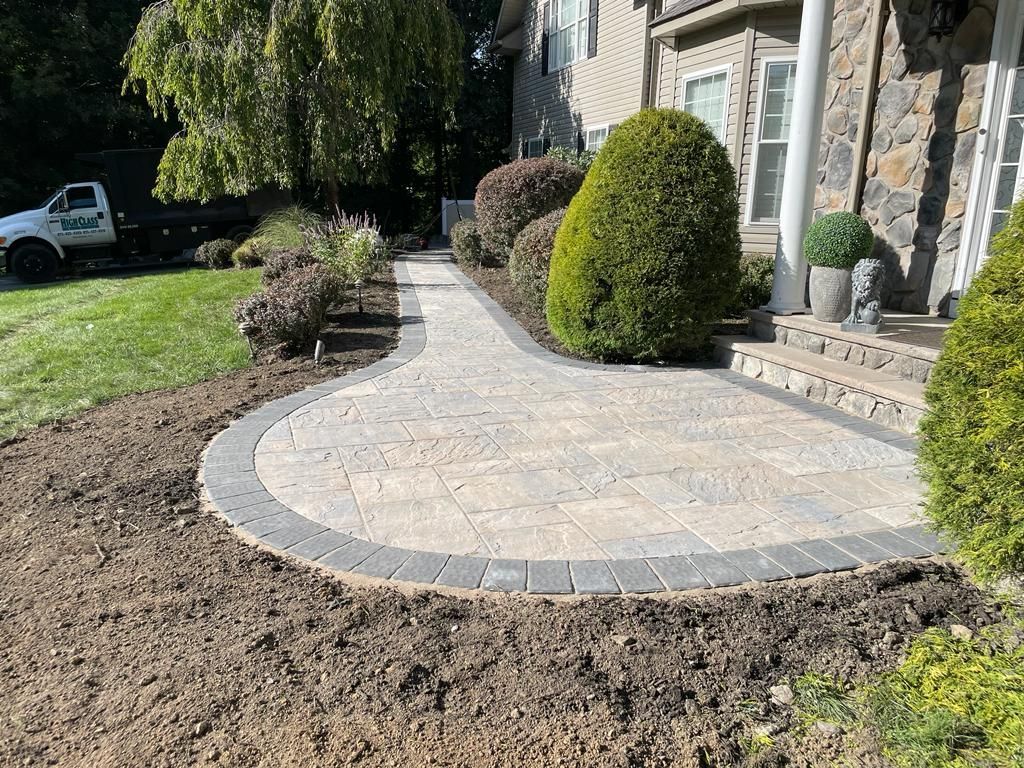
As the last traces of winter melt away, it's time to roll up your sleeves and breathe some life back into your yard. In Succasunna, spring brings the perfect opportunity to prep your landscape for a lush, vibrant growing season. Whether you're a hands-on homeowner or calling in the pros, these tasks will help your outdoor space thrive. For expert landscaping in Succasunna, NJ, or the surrounding areas, contact High Class Tree Service this spring. Clean Up the Leftovers of Winter Start by clearing away dead leaves, broken branches, and any debris left behind by snow and wind. This helps your yard look fresh and prevents mold and pests from settling in. Be sure to rake out flower beds and around trees to give new growth a chance to breathe. Prune and Prep Your Plants Spring is prime time for pruning. Trim back shrubs and trees to encourage healthy new growth and shape them before they fully leaf out. Cut back perennials that were left standing over winter, and remove any dead or damaged stems. This gives your garden a clean slate. Test and Treat Your Soil In New Jersey's varied soil, testing your ground before planting is a smart move. You can find affordable soil test kits at garden centers or through Rutgers Cooperative Extension. Based on the results, amend your soil with compost, lime, or fertilizer to give your plants the nutrients they need. Refresh Your Lawn Rake out leftover thatch, aerate compacted areas, and overseed if your lawn has bare spots. A spring feeding with a nitrogen-rich fertilizer will help your grass green up faster and stand up to summer heat. Mulch It Up A fresh layer of mulch does wonders by locking in moisture, suppressing weeds, and giving your garden beds a clean, polished look. Aim for about two to three inches, but keep it away from the base of trees and plants to avoid rot. Plan Your Planting With the danger of frost mostly past in late spring, now’s the time to plant annuals, herbs, and vegetables. Stick with native or hardy species to handle North Jersey's unpredictable weather swings. Residential Landscaping in Succasunna, NJ High Class Tree Service specializes in creating stunning residential landscapes that reflect your unique style and preferences. Whether you're looking to transform your backyard into an outdoor oasis or enhance your front yard's curb appeal, our team of landscaping professionals is here to bring your vision to life. From mulching and weeding to landscape design to installation, we will work closely with you to ensure that every detail is perfect, resulting in a landscape that you'll love coming home to. Call us at 973-437-5510 to learn more about our services in Succassunna, NJ, and the surrounding areas.
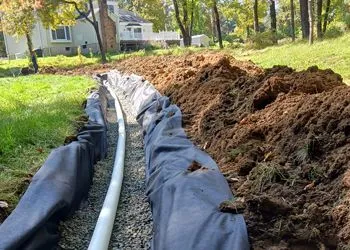
Maintaining a beautiful yard goes beyond just mowing the lawn and planting flowers. One key aspect homeowners often overlook is proper drainage. Poor drainage can lead to water pooling, erosion, and even damage to your home's foundation if left unaddressed. Below, we explore some of the most common drainage issues you might encounter in your yard and what you can do about them. When you need draining or irrigation solutions in Succasunna, NJ, or the surrounding areas, contact High Class Tree Service. Inadequate Grading and Low Spots One of the most common drainage problems is improper grading. If your yard isn’t sloped away from your home, water can accumulate in low spots. In New Jersey, where heavy rains can occur, this pooling water might not only create unsightly wet patches but also lead to issues like mold growth or basement flooding. Correcting the slope with a bit of regrading or installing a French drain can help divert water away from problem areas. Clogged Gutters and Downspouts Your gutters and downspouts are essential for directing rainwater away from your yard and home. However, when these channels become clogged with leaves, twigs, or debris, water can spill over and saturate your yard. This excessive moisture often causes soil erosion and can undermine walkways or driveways. Regular cleaning of gutters, especially in the fall and early spring, can prevent these drainage headaches. Soil Erosion Heavy, continuous rainfall in the area can sometimes lead to soil erosion, particularly on sloped or unprotected parts of your yard. Erosion not only affects the appearance of your landscape but can also damage the base of trees and shrubs, weakening their root systems. Installing retaining walls or adding ground cover like native grasses can help stabilize the soil and control erosion. Standing Water Persistent puddles or standing water in your yard indicate that drainage systems are not effectively moving water away from your property. This can encourage mosquito breeding and lead to water damage. Surface drainage can be improved with gravel paths or swales to channel water away naturally. Draining & Irrigation Jobs in Succasunna, NJ Proper drainage and irrigation is essential for maintaining a healthy landscape throughout the year. High Class Tree Service offers irrigation system installation in Succasunna to ensure your plants receive the water they need to thrive throughout the summer. With a variety of options available, we can design and install a custom irrigation solution that meets your property's unique needs. Our team also offers landscaping drainage installation, which can help prevent pooling water, muddy gardens, and mushy yards. With French Drains being a specialty of ours, we can ensure the system operates as good as it looks! Give us a call at 973-437-5510 . We would be happy to talk about your options during an onsite consultation for drainage or irrigation system installation.

